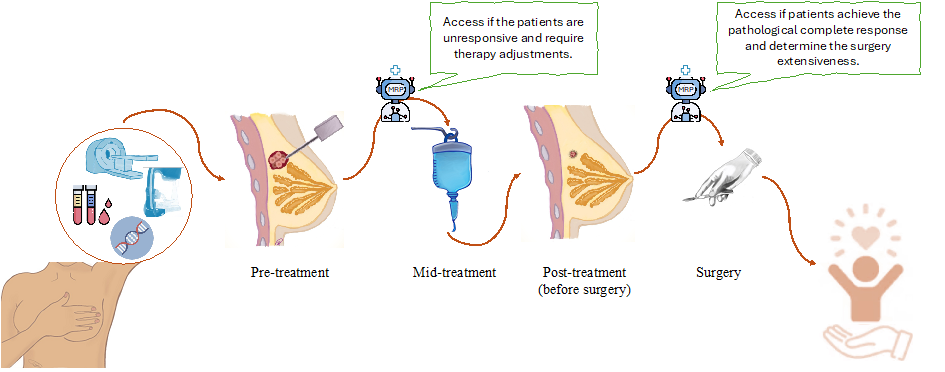Research
Response Prediction
Project 1. Predicting up to 10 year breast cancer risk using longitudinal mammographic screening history
Breast cancer treatment is often complex and intensive. Many patients receive neoadjuvant therapy such as chemotherapy or hormone therapy, to shrink the tumor before surgery. However, not all patients respond well to this treatment, and predicting its effectiveness remains a major challenge for doctors. To address this, researchers at the Radboud UMC have developed an artificial intelligence (AI) model.
Breast cancer is the most common type of cancer worldwide, accounting for 31% of cancer diagnoses in women. Patients who cannot undergo immediate surgery are typically treated with neoadjuvant therapy first. After treatment, doctors analyze whether cancer cells remain in the breast or lymph nodes.
This evaluation is a complex, multidisciplinary process requiring the analysis of various data sources, including radiological images, tumor tissue characteristics, clinical data, and patient-specific information. This collaboration between specialists takes time, and since neoadjuvant therapy is not always effective, some patients endure significant side effects without benefiting from the treatment.
In this project, we develop an AI model called Multi-Modal Response Prediction (MRP). This model helps doctors predict how breast cancer patients will respond to neoadjuvant therapy. By integrating imaging and pathological data over time and handling variations in data availability across multiple centers, MRP can reduce clinicians’ workload, accelerate precise treatment decisions, and ultimately improve patient outcomes.

